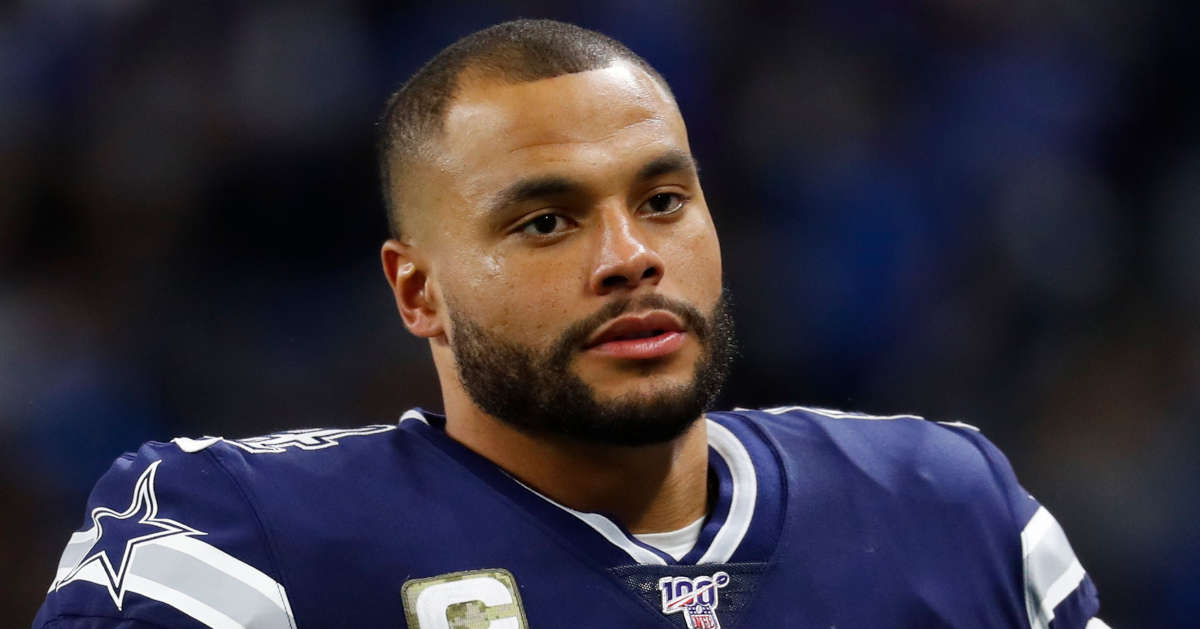Mental health has become a larger topic on a national level in recent years, but it is still a subject that is often misunderstood or simply dismissed by many. While some recognize mental illness for the overwhelming and often suffocating illness it is, the symptoms are not the same for everyone and can be considered clinical in more extreme circumstances. People navigating mental illness often suffer in silence as they fear being viewed negatively.
When quarterback Dak Prescott spoke out about depression and mental health as the face and leader of the Dallas Cowboys, it was a very significant gesture, especially for those who suffer everyday with similar struggles. In the wake of his brother’s suicide and mother’s battle with colon cancer leading to her death in 2013, Prescott was forthcoming about his own bout with anxiety and depression. Even prior to his brother’s death, the 27 year old Prescott indicated he was dealing with thoughts and feelings he hadn’t been familiar with until recently.
“All throughout this quarantine, I started experiencing emotions I’ve never felt before – anxiety for the main one,” Prescott said. “And then, honestly, a couple of days before my brother passed, I started experiencing depression. I didn’t necessarily know what I was going through, to say the least, and hadn’t been sleeping at all.”
When Prescott stated that he experienced depression and didn’t know what was going on and hadn’t been sleeping, those words resonated with me personally. In 2012, my father lost his battle with cancer and that along with all of the other trials in my life was the beginning of my battle with an illness I didn’t understand and honestly, I denied for years.
Clinical depression along with PTSD has been a tiring battle but an educational one. Many feel as I once did, that mental illness is something that can’t affect them. But the truth is, it doesn’t matter whether you have a family history of this illness or not, we can all be affected. The death of a loved one or just the everyday struggles of life can wear on us; leaving us depressed, anxious, and alone at times.
However, the most important thing that we can take away from Prescott’s openness is that we all need to continue to work to create an environment that those who are suffering can feel comfortable enough to open up to those around them.
“I think that it is important to be vulnerable, to be genuine, and to be transparent,” Prescott said in a recently released interview from earlier this year for In Depth With Graham Bensinger. “That goes a long way when you are a leader and your voice is being heard by so many and you can inspire.”
It’s also imperative for those who do not struggle with this illness to educate themselves so that they can spot and help family members or friends who may be dealing with mental health issues that they could be in denial about.
Whether it is depression, anxiety, or something else, mental illness is not something to take lightly. Individuals who feel they might be struggling with some type of issue with their mental health should reach out for assistance and visit a doctor or mental health professional such as a psychologist or psychiatrist, as soon as they can.
Being able to talk about his issues in the past is one of the prevailing reasons he believes he’s in a better place mentally now. It’s also the reason he advocates for more people opening up about mental illness.
“I think it’s huge,” Prescott said. “I think it’s huge to talk. I think it’s huge to get help. And it saves lives. If I wouldn’t have talked about those things to the people I did, I wouldn’t have realized my friends and a lot more people go through them — and they are as common as they are.”
There’s no denying the level of importance and continued education needed regarding mental health. The challenges that Prescott has been through is something that is common to many in today’s world. So may we all be vigilant in showing love and compassion that can create an even bigger platform that allows those who suffer from this invisible illness to speak openly about it.
For anyone experiencing problems or interested in learning more about mental health matters, visit the National Institute of Mental Health website. For those in need of immediate help, call the National Suicide Prevention Lifeline at 1-800-273-TALK (8255).

